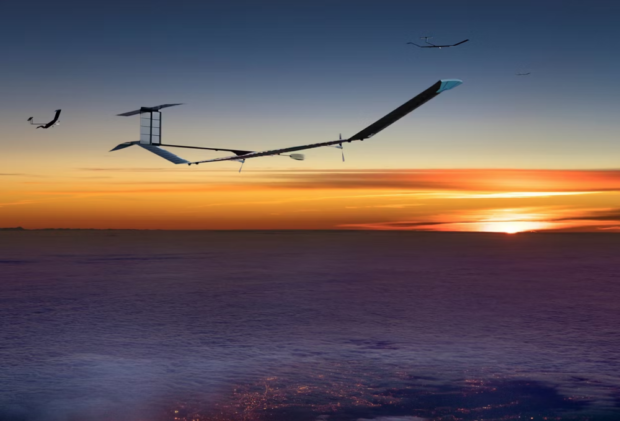On August 19th, the infamous solar-powered drone Zephyr was lost over Arizona, following an extended flight that had lasted for 64 days straight. It came within hours of breaking the record for the longest flight in history.
Despite the aircraft being lost, the developers and the US Army gathered critical data from the aircraft during its flight, which will help the military further its high-altitude operational goals.
A lost marvel
On August 19th, ground controllers directing the Airbus drone Zephyr lost contact with the vessel. The Airbus Defense and Space team had previously flown the drone on several long-distance flights, many of which lasted over two weeks. This flight had lasted for more than 64 days.
The aircraft series has undergone testing by Airbus in Arizona for multiple years, and the current model is the newest in its class and is formally known as the Zephyr 8. A representative from Airbus Defense told Simple Flying,
“Following 64 days of stratospheric flight and the completion of numerous mission objectives, Zephyr experienced circumstances that ended its current flight. No personal injury occurred. Our teams are currently analyzing more than 1500 hours of stratospheric mission data. The valuable experience from this prototype’s ultra-long endurance flight has proved to be a positive step toward the Army’s high-altitude platform goals.”
Thanks to help from ADSB Exchange, Simple Flying has been able to track the final movements of the Zephyr. Flying under callsign ZULU82, it had spent most of the past two months in the southwestern parts of the United States, cruising around at altitudes of some 60 – 70,000 feet.
On its final day of operations, it was tracking around over the vast Arizona Desert, about half way between Phoenix and Mexicali, Baja California. Flying slightly lower than was typical, at some 45,000 – 50,000 feet, it had completed an S-shape maneuver at around 50 – 60 knots when something went catastrophically wrong. ADSB data shows a vertical descent rate which rapidly increased, topping out at a speed of 4,544 feet per minute. Although unconfirmed by Airbus, it does seem that the Zephyr met a rather unglamorous end.
The Zephyr drone is unique not only because of the high altitudes at which it can fly, but also because of how long it can continuously remain airborne. Its capability for such long flights is thanks to its use of solar power. The solar panels on its backside continuously absorb sunlight during the day, providing sufficient energy to power its propellers during the day and also at night. Flying high in the stratosphere, the aircraft remains above the majority of terrestrial weather. This allows it to receive uninterrupted radiation from the sun for as long as possible. Despite being over 82 feet long, the ultra-light craft comes in at only 166 pounds.
Record breaker
Throughout its operation, Zephyr has set multiple records. It set the record for the longest unmanned flight on a previous flight in 2018. The aircraft set a new record for the highest altitude reached in its class at 76,100 feet. On its current flight, it almost broke another record.
The flight came within hours of beating the 63-year-strong record for the longest recorded flight, currently held by two pilots using a Cessna 172 Skyhawk. The plane flew for 64 days and 22 hours on what is commonly known as the Hacienda flight. While this drone was unmanned, if it had remained in contact with ground operations for another day, it would have set the world record for the longest flight in history.
Source: Simple Flying



